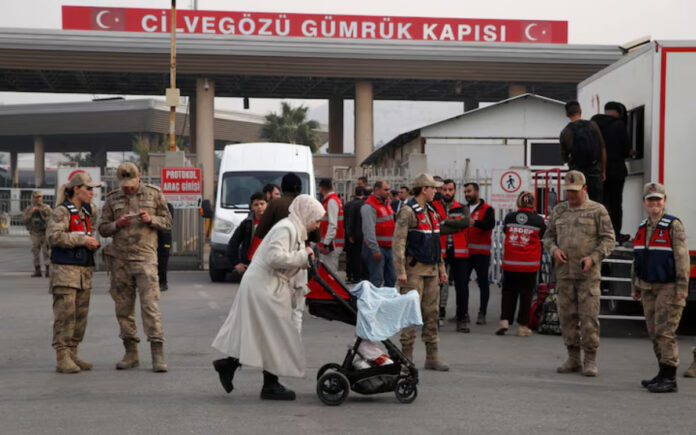Damascus: According to the head of the U.N. refugee agency, nearly 30% of the millions of Syrian refugees residing in Middle Eastern countries express a desire to return to Syria within the next year. This marks a significant shift from nearly zero last year. Filippo Grandi, who heads the U.N. Refugee Agency, shared this update following an assessment conducted by the U.N. in January, just weeks after the fall of President Bashar al-Assad. The change comes after the regime’s abrupt collapse, caused by Islamist rebels, which ended a devastating 13-year civil war that had contributed to one of the largest refugee crises in modern history.
“We have seen the needle move, finally, after years of decline,” Grandi stated during a press conference in Damascus. This followed a series of meetings with Syria’s new ruling administration. He further elaborated, saying, “The number of Syrians wishing to return had reached almost zero. It’s now nearly 30% in the space of a few weeks. There is a message there, which I think is very important, must be listened to, and must be acted upon.”
Since Assad’s fall, around 200,000 Syrian refugees have already returned to Syria, with an additional 300,000 fleeing from Lebanon during the Hezbollah-Israel conflict in September and October. Many of these returnees are believed to have stayed in Syria.
A key priority for Syria’s new administration is the repatriation of the approximately 6 million Syrians who fled abroad, as well as the millions displaced within the country. However, the civil war has left significant damage, with many cities in ruins, public services in disrepair, and the majority of the population living in poverty. Syria remains under stringent Western sanctions that continue to isolate its formal economy from the global market.
To support returnees, many of whom have to sell their belongings to afford their journey home, U.N. agencies are offering cash aid for transportation. Additionally, they will provide food assistance and help rebuild at least parts of damaged homes. However, Grandi emphasized the need for more aid from international donors.
Grandi also called for reconsideration of the existing sanctions. He refrained from commenting directly on the U.S. administration’s recent decision to suspend foreign aid programs. “If sanctions are lifted, this will improve the conditions in the places where people return,” he added.
Also Read | FARC Faction Faces Desertions Amid ELN Attack in Colombia’s Catatumbo Region
Earlier this month, the U.S. granted a six-month sanctions exemption for certain sectors, including energy. Nevertheless, Syria’s new leadership, led by Ahmed Sharaa, insists that more relief is necessary.
Also Read | Russia Allegedly Revives Cold War-Era Submarine Base in Balaklava
Grandi highlighted that refugees are responding to the political process championed by Sharaa, which aims to establish a governing authority by March 1, one that better represents Syria’s diverse population. “Refugees are listening to what he’s saying, to what his people are saying, and that’s why I think many people decided to go back,” Grandi said. “But many more will come if these things continue to be positive.”



